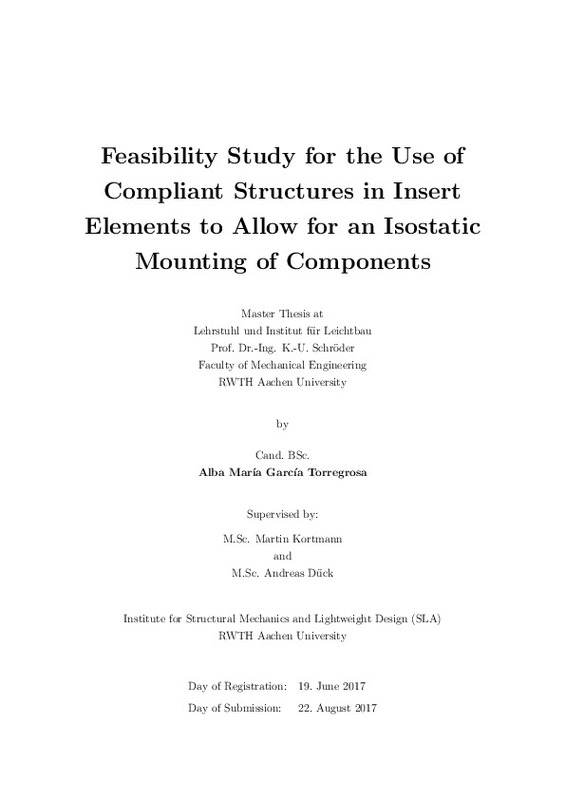|
Resumen:
|
[ES] Durante casi tres décadas, ha habido proyectos de tecnología asociados al mantenimiento en órbita (OOS, del inglés, On-Orbit Servicing) y campos como la robótica espacial y el diseño modular de elementos de infraestructura ...[+]
[ES] Durante casi tres décadas, ha habido proyectos de tecnología asociados al mantenimiento en órbita (OOS, del inglés, On-Orbit Servicing) y campos como la robótica espacial y el diseño modular de elementos de infraestructura espacial. Muchos desafíos han surgido debido a la falta de estándares e interfaces, pero debido a los desarrollos tecnológicos realizados en los últimos años, el concepto iBOSS ahora tiene como objetivo combinar desde modularidad, interfaces, escenarios multi-misión y principios de servicio hasta evaluaciones económicas.
En este contexto, existe la necesidad de un mecanismo que permita la expansión térmica de la interfaz dentro de los sistemas de bloques modulares, sin posibles daños o deformaciones para evitar problemas importantes tales como el impedimento del mantenimiento en órbita. Un diseño adecuado de un inserto flexible cumpliría con estas necesidades.
Esta tesis presenta diferentes diseños que potencialmente cumplirían los requisitos, tanto en situación de lanzamiento como a la hora de resistir al entorno espacial. Un estudio sobre el comportamiento de las tensiones se lleva a cabo mediante la variación de parámetros como el grosor y la longitud de los insertos utilizando el método de elementos finitos.
El trabajo concluye con la extracción de una tendencia que describe la correlación entre la variación en los parámetros y los valores resultantes para las tensiones. Los diseños que mejor funcionan para la resolución de problemas se describen y se sugiere una forma de alcanzar los valores de tensión requeridos.
[-]
[EN] For almost three decades now, there have been projects on technology associated to On-Orbit Servicing (OOS) and fi elds such as space robotics and modular design of space infrastructure elements. Many challenges aroused ...[+]
[EN] For almost three decades now, there have been projects on technology associated to On-Orbit Servicing (OOS) and fi elds such as space robotics and modular design of space infrastructure elements. Many challenges aroused due to the lack of standards and interfaces, but because of technology developments made over recent years, the iBOSS concept now aims to combine modularity, interfaces, multi-mission scenarios and servicing principles all the way to economic assesments.
Within this context, there is a need for a mechanism that enables the thermal expansion of the interface within the modular block systems, without possible damage or deformation to avoid major issues such as the hindering of the On-Orbit Servicing. An adequate design of a compliant insert would meet these needs.
This thesis presents dierent designs that would potentially behave within the requirements, both for a launch scenario and in resistance to the space environment. A study on the performance of the stresses is carried out by varying parameters such as the thickness and length of the inserts using the Finite Elements Method.
The work concludes with the extraction of a trend that describes the correlation between the variation in the parameters and the resulting values for the stresses. The designs that would best work for the problem solving are outlined and a way to reach the required stress values is suggested.
[-]
|







